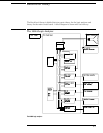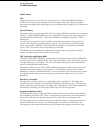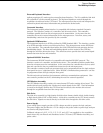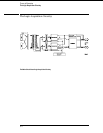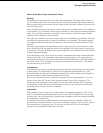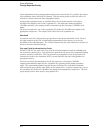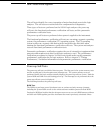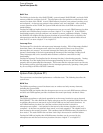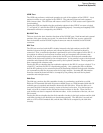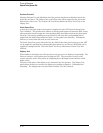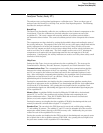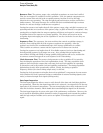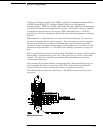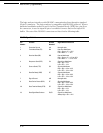
Self-Tests Description
The self-tests identify the correct operation of major functional areas in the logic
analyzer. The self-tests are not intended for component-level diagnostics.
Three types of tests are performed on the 1664A logic analyzer: the power-up
self-tests, the functional performance verification self-tests, and the parametric
performance verification tests.
The power-up self-tests are performed when power is applied to the instrument.
The functional performance verification self-tests are run using a separate operating
system, the performance verification (PV) operating system. The PV operating
system resides on a separate disk that must be inserted in the disk drive when
running the functional performance verification self-tests. The system and analyzer
tests are functional performance verification tests.
Parametric performance verification requires the use of external test equipment that
generates and monitors test data for the logic analyzer to read. The performance
verification procedures in chapter 3 of this service guide make up the parametric
performance verification for the logic analyzer. Refer to chapter 3, "Testing
Performance," for further information about parametric performance verification.
Power-up Self-Tests
The power-up self-tests are divided into two parts. The first part is the system memory tests
and the second part is the microprocessor interrupt test. The system memory tests are
performed before the logic analyzer actually displays the power-up self-test screen. Both the
system ROM and RAM are tested during power-up. The interrupt test is performed after the
power-up self-test screen is displayed.
The following describes the power-up self-tests:
ROM Test
The ROM test performs several checksum tests on various read only memory elements,
including the system ROM as well as the various software modules present in flash ROM.
Passing the ROM test implies that the microprocessor can access each ROM memory address
and that each ROM segment provides checksums that match previously calculated values.
8–9





